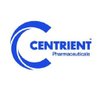Utility & Maintenance Engineer
20+ Utility & Maintenance Engineer Interview Questions and Answers

Asked in FMI Automotive Components

Q. What are the different types of air conditioning systems, and how do they work?
There are mainly four types of air conditioning systems: window AC, split AC, central AC, and portable AC.
Window AC: compact, easy to install, and suitable for small rooms.
Split AC: consists of two units, indoor and outdoor, and can cool larger areas.
Central AC: used in large buildings and cools the entire building through ducts.
Portable AC: can be moved from room to room and doesn't require installation.
Working process involves refrigerant, compressor, condenser, expansion v...read more

Asked in FMI Automotive Components

Q. Process of Ro plant and air conditioning system
The process of a Reverse Osmosis (RO) plant involves the removal of impurities from water, while an air conditioning system cools and dehumidifies the air.
RO plant uses a semi-permeable membrane to separate impurities from water through the process of reverse osmosis.
The RO process involves applying pressure to the water, forcing it through the membrane and leaving behind contaminants.
The purified water is collected, while the impurities are flushed away as waste.
An air condi...read more
Utility & Maintenance Engineer Interview Questions and Answers for Freshers

Asked in Hindustan Unilever

Q. What are the five different types of measuring tools used in various applications?
Measuring tools are essential for precision in various applications, ensuring accuracy in measurements across different fields.
1. Ruler: Used for measuring length, width, and height; common in construction and design.
2. Caliper: Measures internal and external dimensions; often used in mechanical engineering.
3. Micrometer: Provides precise measurements of small objects; used in manufacturing and machining.
4. Pressure Gauge: Measures pressure in fluids or gases; crucial in HVAC...read more

Asked in Hindustan Unilever

Q. What is the maintenance procedure for blowers in terms of hours?
Regular maintenance of blowers ensures optimal performance and longevity, typically scheduled based on operational hours.
Inspect and clean air filters every 500 hours of operation to ensure efficient airflow.
Lubricate bearings and moving parts every 1000 hours to reduce wear and tear.
Check and tighten all electrical connections every 2000 hours to prevent failures.
Replace worn-out belts and hoses every 3000 hours to avoid breakdowns.
Conduct a full system inspection every 5000...read more
Asked in Uttam dairy

Q. What is steam boilers Required utility uttam dairy
Steam boilers are essential utilities in dairy industry for heating milk and sterilizing equipment.
Steam boilers are used in dairy industry for heating milk to specific temperatures.
They are also used for sterilizing equipment to maintain hygiene standards.
Proper maintenance of steam boilers is crucial to ensure efficient operation and prevent breakdowns.
Regular inspections and testing of safety devices are necessary to ensure safe operation.
Examples of steam boiler brands us...read more

Asked in Bengal Beverages

Q. Describe the boiler installation process and its SOP.
Boiler installation process involves several steps and adherence to standard operating procedures.
Site preparation and foundation construction
Boiler assembly and installation
Piping and electrical connections
Commissioning and testing
Documentation and record-keeping
Regular maintenance and inspection
Examples: ASME Boiler and Pressure Vessel Code, NFPA 85, manufacturer's instructions
Utility & Maintenance Engineer Jobs


Asked in Uttam dairy

Q. What is the use of ammonia gases in dairy plants?
Amoniya gases are used in dairy plants for refrigeration purposes and as a source of nitrogen for packaging and processing.
Used for refrigeration to maintain cold temperatures in storage and processing areas
Provides nitrogen for packaging to extend shelf life of dairy products
Used in processing to prevent oxidation and spoilage of dairy products

Asked in Hindustan Unilever

Q. What are the five types of cutting tools?
Cutting tools are essential for machining processes, enabling precise material removal in various applications.
1. **End Mills**: Used for milling operations, available in various shapes and sizes.
2. **Drills**: Designed for creating holes, with twist drills being the most common type.
3. **Lathes**: Tools that rotate the workpiece against a cutting tool to shape it.
4. **Saws**: Used for cutting materials, with band saws and circular saws being popular examples.
5. **Reamers**: ...read more
Share interview questions and help millions of jobseekers 🌟

Asked in Uttam dairy

Q. What equipment is used in a WTP plant?
WTP plant is used for water treatment to remove impurities and make water safe for consumption.
Water treatment plant (WTP) is used to remove impurities from water sources such as lakes, rivers, or groundwater.
Processes in a WTP plant include coagulation, flocculation, sedimentation, filtration, and disinfection.
WTP plants help in providing clean and safe drinking water to communities.
Examples of WTP plants include those operated by municipal water utilities or industrial faci...read more

Asked in FMI Automotive Components

Q. Fire Hydrant system operating and pms work
Fire hydrant system operating and PMs work are essential for ensuring safety and functionality.
Regular inspections and maintenance of fire hydrants are necessary to ensure they are in good working condition.
PMs work includes checking for leaks, testing water pressure, and lubricating moving parts.
Fire hydrant systems must be operated correctly during emergencies to ensure maximum effectiveness.
Training and education for personnel on fire hydrant system operation and maintenan...read more
Asked in Mourya Aquex

Q. What is the working principle of a generator?
Generators work on the principle of electromagnetic induction to convert mechanical energy into electrical energy.
Generators use a magnetic field and a conductor to create an electric current.
When the conductor moves through the magnetic field, it induces a voltage in the conductor.
This voltage creates an electric current that can be used as power.
Generators can be powered by various sources such as steam, water, wind, or diesel engines.
Asked in Uttam dairy

Q. What is used in boilers that burn coal?
Boilers in coal plants are used to generate steam for electricity production.
Boilers in coal plants burn coal to produce heat, which is used to generate steam.
The steam produced is used to drive turbines connected to generators, producing electricity.
Boilers require regular maintenance to ensure efficient operation and prevent breakdowns.

Asked in Gujarat Fluorochemicals

Q. Explain the water chiller process and potential breakdowns.
Water chillers remove heat from liquids via vapor-compression or absorption refrigeration cycles, crucial for HVAC systems.
Chillers operate using a refrigerant that absorbs heat from water, cooling it for circulation.
Common types include air-cooled and water-cooled chillers, each suited for different applications.
Breakdowns can occur due to refrigerant leaks, compressor failures, or electrical issues.
Regular maintenance, such as cleaning coils and checking refrigerant levels,...read more
Asked in Uttam dairy

Q. What is the purpose of an ETP plant?
ETP plant stands for Effluent Treatment Plant, which is used to treat industrial wastewater before it is released into the environment.
ETP plants are used to remove contaminants and pollutants from industrial wastewater.
They typically involve processes such as physical, chemical, and biological treatment to clean the water.
Common components of an ETP plant include screens, clarifiers, filters, and disinfection units.
The treated water can then be safely discharged or reused in...read more

Asked in Salcomp Manufacturing

Q. Type of transformer production replacement
Transformers are typically produced in factories by manufacturers and are replaced based on factors like age, condition, and load requirements.
Transformers are usually produced in factories by specialized manufacturers.
Replacement of transformers is determined by factors such as age, condition, and load requirements.
Newer transformers may have more advanced features and improved efficiency compared to older models.
Replacement transformers should be compatible with the existin...read more

Asked in Gujarat Fluorochemicals

Q. Explain the process and parameters of a DI plant.
DI plant processes purify water using deionization to remove ions and impurities, ensuring high-quality water for various applications.
Deionization (DI) uses ion exchange resins to remove cations and anions from water.
Common parameters include conductivity, total dissolved solids (TDS), and pH levels.
Conductivity indicates the level of ion concentration; lower values signify purer water.
Regular monitoring of resin performance is crucial for maintaining water quality.
Example: ...read more

Asked in UltraTech Cement

Q. Legally statutory requirements of organisations
Organisations are legally required to comply with statutory regulations.
Statutory regulations are laws and rules set by the government.
Organisations must comply with these regulations to avoid legal consequences.
Examples of statutory regulations include health and safety laws, environmental laws, and employment laws.
Organisations must also keep up to date with any changes to these regulations.
Failure to comply with statutory regulations can result in fines, legal action, and ...read more

Asked in Bengal Beverages

Q. Chiller installation and it's SOP
Chiller installation requires proper planning and execution to ensure efficient operation. SOP should be followed for safe and effective installation.
Proper site survey and selection of suitable location for chiller installation
Ensuring proper electrical and mechanical connections
Proper insulation and piping
Following manufacturer's instructions for installation and commissioning
Conducting performance tests and ensuring compliance with safety standards
Developing and following ...read more

Asked in Jio

Q. How do you work on telecom systems?
Telecom systems involve designing, installing, and maintaining communication networks for efficient data transmission.
Understand system requirements: Assess the needs for voice, data, and video communication.
Design network architecture: Create a blueprint for the telecom system, including hardware and software components.
Install equipment: Set up routers, switches, and transmission lines to establish connectivity.
Conduct testing: Perform tests to ensure the system operates co...read more
Asked in Ruchika Recruitment Services

Q. Pumps selection and their specs
Pumps selection involves considering various factors such as flow rate, head, power, efficiency, and material compatibility.
Determine the required flow rate and head for the application
Select a pump with suitable power and efficiency based on the system curve
Consider the material compatibility of the pump with the fluid being pumped
Choose a pump with appropriate features such as self-priming or variable speed control
Ensure compliance with relevant standards and regulations
Exa...read more

Asked in Tata Motors

Q. What is a transformer?
A transformer is a device that transfers electrical energy from one circuit to another through electromagnetic induction.
Transformers are used to increase or decrease voltage levels in electrical circuits.
They consist of two coils of wire, known as the primary and secondary coils.
The primary coil is connected to the input voltage source, while the secondary coil is connected to the output load.
Transformers are commonly used in power distribution systems to step up voltage for...read more

Asked in Hindustan Unilever

Q. How do gears work?
Gears transmit torque and motion between shafts, using interlocking teeth to convert rotational force efficiently.
Gears consist of toothed wheels that mesh together to transfer motion.
When one gear turns, it causes the adjacent gear to turn in the opposite direction.
The gear ratio determines the speed and torque output; for example, a small gear driving a large gear increases torque.
Common applications include bicycles (chain and sprockets) and automotive transmissions.

Asked in PCBL Chemical Limited

Q. How do pumps work?
Pumps move fluids by converting mechanical energy into hydraulic energy, using various mechanisms to create flow and pressure.
Pumps can be classified into positive displacement and centrifugal types.
Positive displacement pumps move fluid by trapping a fixed amount and forcing it into the discharge pipe (e.g., gear pumps).
Centrifugal pumps use rotational energy to move fluid, creating a pressure difference (e.g., submersible pumps).
Pumps are used in various applications, such ...read more

Asked in Centrient Pharmaceuticals

Q. Parts of gear box
A gearbox consists of various components that work together to transmit power and control speed and torque in machinery.
Input Shaft: Connects to the power source, transmitting rotational energy.
Gear Wheels: Different sizes to change speed and torque; e.g., spur gears, bevel gears.
Output Shaft: Transfers the modified power to the machine's components.
Bearings: Support rotating parts, reducing friction and wear.
Housing: Encloses and protects internal components from dirt and da...read more
Interview Experiences of Popular Companies








Reviews
Interviews
Salaries
Users

















